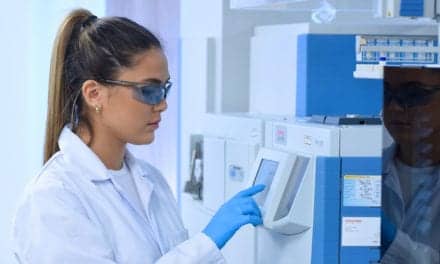SeroTag technology from Protagen AG, Dortmund, Germany, was recently used in a study identifying novel protein biomarkers of prostate cancer, which are potential drug targets supporting strategies in precision medicine.1 The discovery was made in close collaboration with Helmut Klocker, Dr. rer. nat., professor of urology at Innsbruck Medical University, and Mark Rubin, MD, professor of pathology and laboratory medicine at Weill Cornell Medical College, along with researchers at Oncotyrol Center for Personalized Cancer Medicine, Innsbruck, and Targos Molecular Pathology GmbH, Kassel, Germany.
Measuring serum autoantibodies in liquid biopsies from prostate cancer patients, the team successfully confirmed tissue-specific biomarkers via immunohistochemistry. “This is a novel route to new and more-specific biomarkers to allow for better detection of prostate cancer inflammation,” Klocker says, adding that the researchers identified such relevant prostate-specific autoantigens as SPOP, SPAST, and STX 18, and also showed the orthogonal validation of the serum markers on tissue microarrays.
“We’ve been working on the role of SPOP and its mutations in prostate cancer for quite some time,” Rubin says. “It is really exciting to learn more about the links to the immune system and the appearance of SPOP-specific autoantibodies in patient sera.”
“It is always a good crossvalidation, when two independent methods yield the same result,” says Thomas Henkel, CEO of Targos. “Validated biomarkers in immune oncology and other immune diseases are a valuable asset. We are very excited to work with Protagen together in this emerging field.”
“There’s an unmet diagnostic need in prostate cancer diagnostics,” says Stefan Müllner, CEO of Protagen. “The commercial value of novel, more-reliable options that don’t involve biopsies and improve follow-up of patients is very attractive.
“Furthermore, SPOP plays a key role in the function of E3 ubiquitin ligase, which is a novel and interesting pathway for therapeutic intervention in cancer,” Müllner adds. “Thus, the data presented in this paper also introduce a novel concept for drug target identification for stratified therapy and personalized medicine.”
For further information, visit www.protagen.com.
REFERENCE
- Schlick B, Massoner P, Lueking A, et al. Serum autoantibodies in chronic prostate inflammation in prostate cancer patients. PloS one. 2016;11(2): e0147739; doi: 10.1371/journal.pone.0147739.







